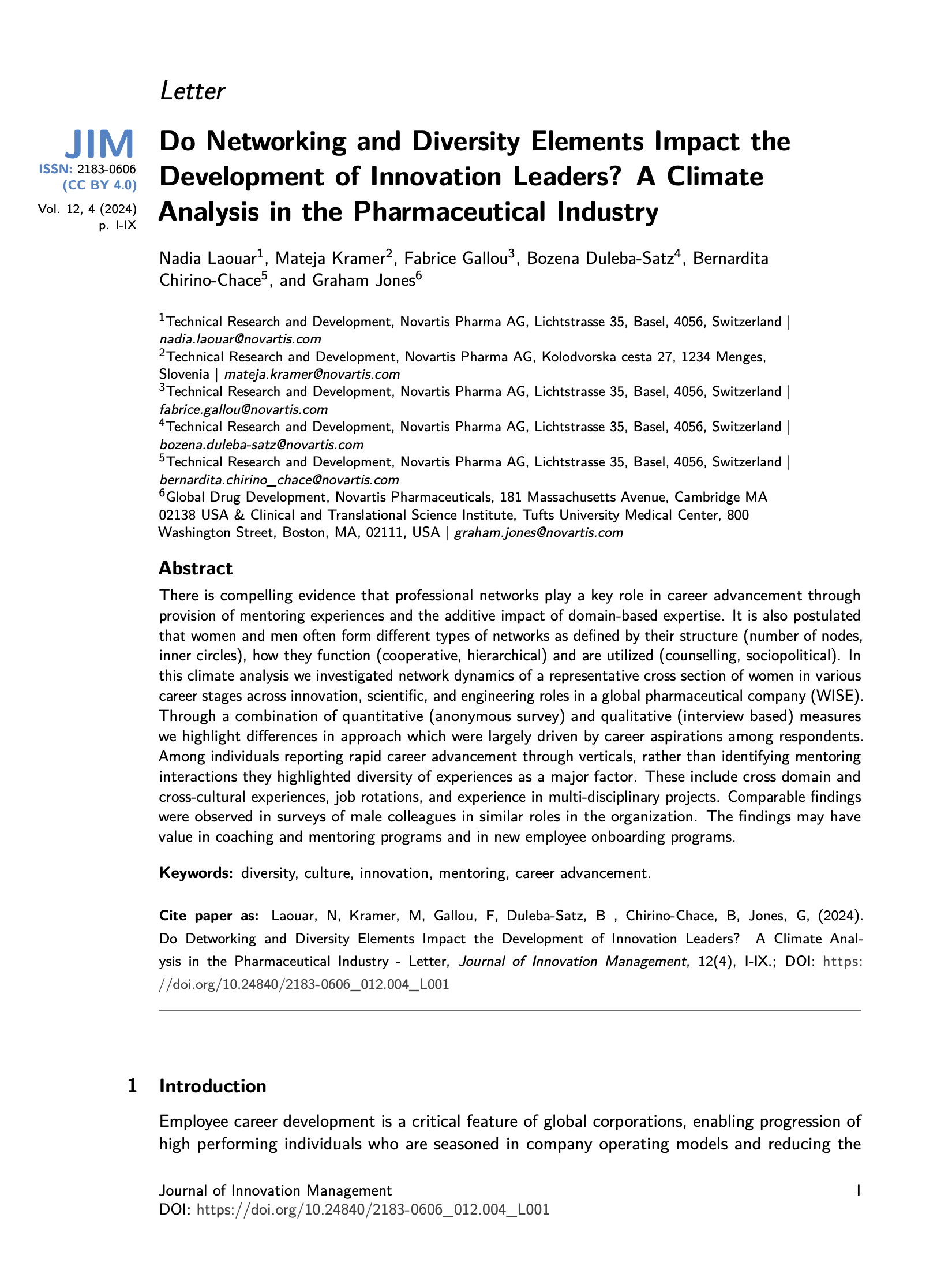Do Networking and Diversity Elements Impact the Development of Innovation Leaders? A Climate Analysis in the Pharmaceutical Industry
Main Article Content
Abstract
There is compelling evidence that professional networks play a key role in career advancement through provision of mentoring experiences and the additive impact of domain-based expertise. It is also postulated that women and men often form different types of networks as defined by their structure (number of nodes, inner circles), how they function (cooperative, hierarchical) and are utilized (counselling, sociopolitical). In this climate analysis we investigated network dynamics of a representative cross section of women in various career stages across innovation, scientific, and engineering roles in a global pharmaceutical company (WISE). Through a combination of quantitative (anonymous survey) and qualitative (interview based) measures we highlight differences in approach which were largely driven by career aspirations among respondents. Among individuals reporting rapid career advancement through verticals, rather than identifying mentoring interactions they highlighted diversity of experiences as a major factor. These include cross domain and cross-cultural experiences, job rotations, and experience in multi-disciplinary projects. Comparable findings were observed in surveys of male colleagues in similar roles in the organization. The findings may have value in coaching and mentoring programs and in new employee onboarding programs.
Article Details
Authors who publish with this journal agree to the following terms:
- Authors retain copyright and grant the journal right of first publication with the work simultaneously licensed under a Creative Commons Attribution License that allows others to share the work with an acknowledgement of the work's authorship and initial publication in this journal.
- Authors are able to enter into separate, additional contractual arrangements for the non-exclusive distribution of the journal's published version of the work (e.g., post it to an institutional repository or publish it in a book), with an acknowledgement of its initial publication in this journal.
- Authors are permitted and encouraged to post their work online (e.g., in institutional repositories or on their website) prior to and during the submission process, as it can lead to productive exchanges, as well as earlier and greater citation of published work (See The Effect of Open Access).

